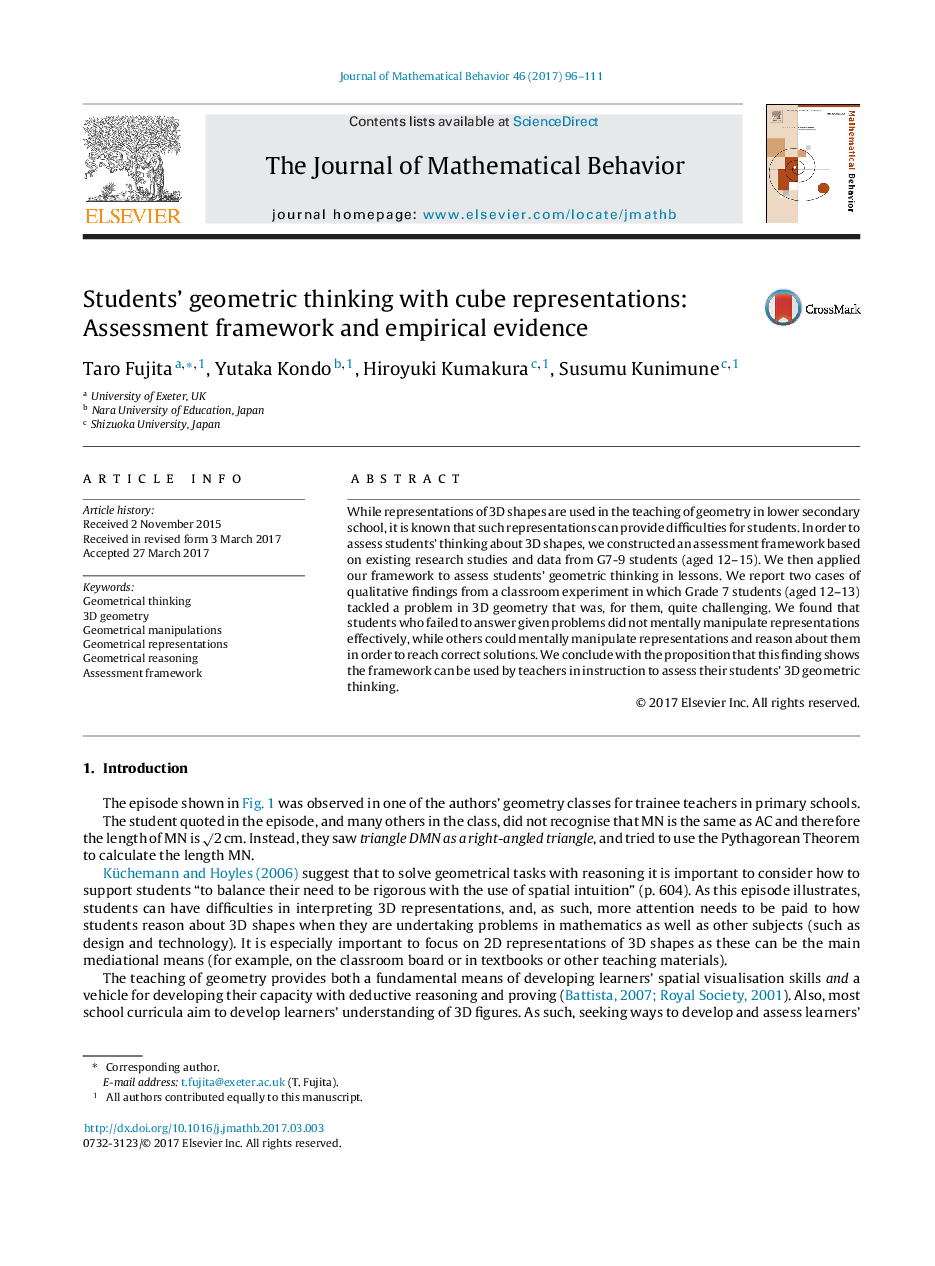| Article ID | Journal | Published Year | Pages | File Type |
|---|---|---|---|---|
| 4939320 | The Journal of Mathematical Behavior | 2017 | 16 Pages |
Abstract
While representations of 3D shapes are used in the teaching of geometry in lower secondary school, it is known that such representations can provide difficulties for students. In order to assess students' thinking about 3D shapes, we constructed an assessment framework based on existing research studies and data from G7-9 students (aged 12-15). We then applied our framework to assess students' geometric thinking in lessons. We report two cases of qualitative findings from a classroom experiment in which Grade 7 students (aged 12-13) tackled a problem in 3D geometry that was, for them, quite challenging. We found that students who failed to answer given problems did not mentally manipulate representations effectively, while others could mentally manipulate representations and reason about them in order to reach correct solutions. We conclude with the proposition that this finding shows the framework can be used by teachers in instruction to assess their students' 3D geometric thinking.
Related Topics
Physical Sciences and Engineering
Mathematics
Applied Mathematics
Authors
Taro Fujita, Yutaka Kondo, Hiroyuki Kumakura, Susumu Kunimune,
